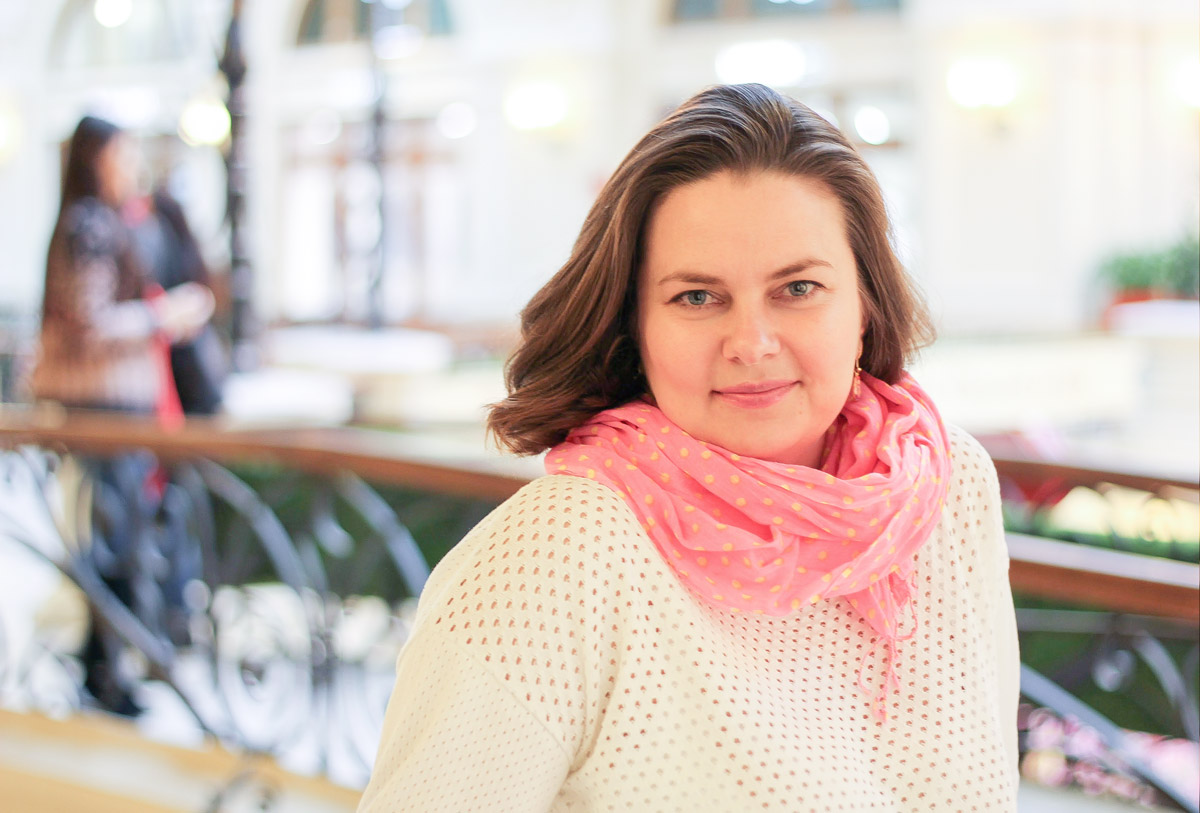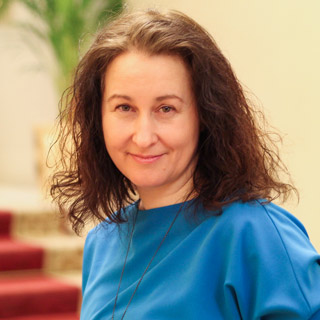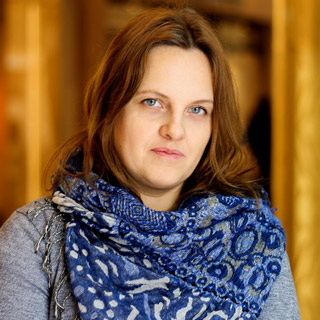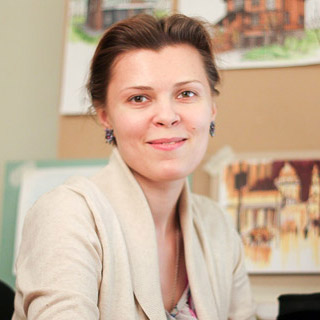ARCHITECT NATALIA PUZYRKOVA:
IT IS ALWAYS BENEFITS TO KNOW THE TECHNOLOGY

— What kind of facade design is good for you?
— Harmonious. In architecture there are no coincidences, each element must be for something and in its place. The finish should bring out the strengths of the house and flatten out the weaknesses and accentuate individuality. It's like with clothing - not everyone is suited to a particular style, and so with the houses. Much depends on the geometry, the pattern of the roof and windows.
— hat if the client doesn't like what you like? Do the designer's personal preferences get in the way?
— No, the client lives in this house and he should be comfortable. My job is to fulfill his dreams as much as possible, with adjustments for reality and good taste.
But if I strongly disagree, I explain and argue my position. As a rule, they agree with me. Sometimes the customer is madly in love with a photo of a house and wants "this. And it is hard for him to understand and believe that his cubic grotesque French imperial style well does not fit.
Most of the time the clients have "neoclassical style" with all the attendant things - rustics, cornices, paneling. And I like variety: Victorian or ultra-modern and laconic, eco style.
— Each architect has his own creative technology. How does your design come into being?
— It starts with a detailed acquaintance with the volume of the house, identifying its strengths and weaknesses, its character. Then I talk to the client, trying to understand what he wants, how he sees the future home, what he plans to do there, what his habits are. To start with, I can make a selection of photos, of those that I think will fit.
I like to structure my own working day, usually dividing it into two parts. I work most efficiently in the morning. But if you need to leisurely think, draw options, it's in the evening. A lamp, a cup of tea...
— How does the team help you? Or do you have to fight with it?
— Sometimes they do. With their unexpected suggestions and options. And sometimes it's like a conspiracy - they are capricious. But we have been working together for a long time and I know that I can rely on them in some points and details, without chewing up every little detail, and I can be confident that they will do the right thing. Colleagues architects also help. Everyone shares their findings in materials and interesting techniques.
— If there are conflicts? Are you a tough person? Do you say what you think?
— I tend to be coldly polite and adamant. I don't get into polemics and scandals, and I always say what I think. Sometimes maybe the person is having a bad day and it's worth postponing the conversation. I can make concessions, do more than the contract prescribes, if it will avoid conflict.
— What kind of clients or stories are ideal in your view?
— Who know what they want but are open to suggestions. Not too meticulous, allowing you to create. Sometimes the house itself is inspiring in its purest form. You see its form and it fits the style perfectly, without caveats or compromises.
Sometimes it's the other way around. The house is a wreck, but you get swept up in the idea, and as you go along there are more ideas and more details. A tile pattern on the terrace, or a patio on the roof, or well-defined landscaping.
— What inspires you in your work?
— Sometimes you see something new and want to use it right away.
Sometimes, walking around town, you see something you were looking for and couldn't find or formulate. And here is a real example on a 1:1 scale.
Modern art is very useful to study, it broadens the mind and the view.
I love going to exhibitions and contests. From landscape design, to furniture made of cardboard and plywood. The experience of my western colleagues, and my own.
I watch different programs like "Fazenda". Many colleagues snort contemptuously at such programs, but they always consider the actual materials and show in detail the process of working with them, step by step. Knowing the technology is always useful.
— What do you have to overcome in yourself?
— The new is always scary. The fear of doing something out of the pattern, not as you're used to. To do more than you know at the moment, to take responsibility for yourself and your team. It's always difficult, but you can't develop without it.
Interviewed by Alexey Vatavu



